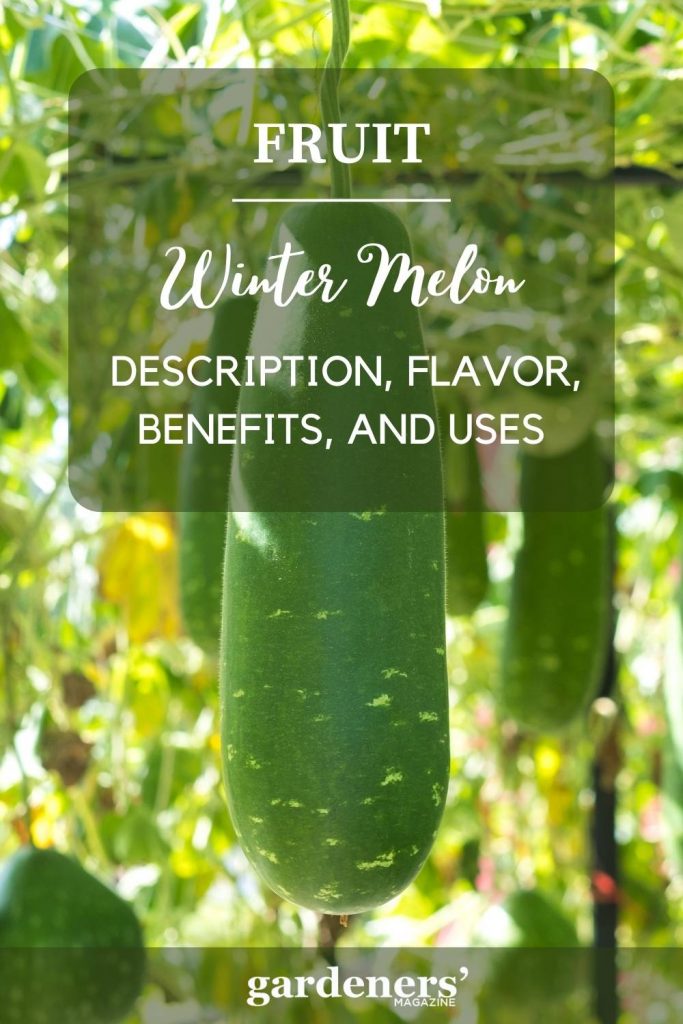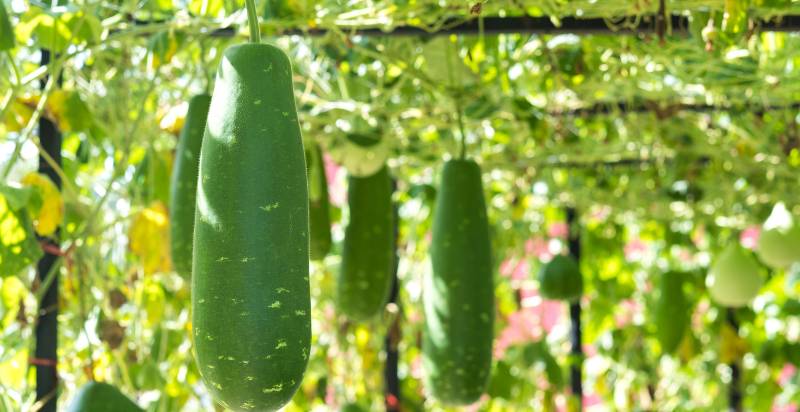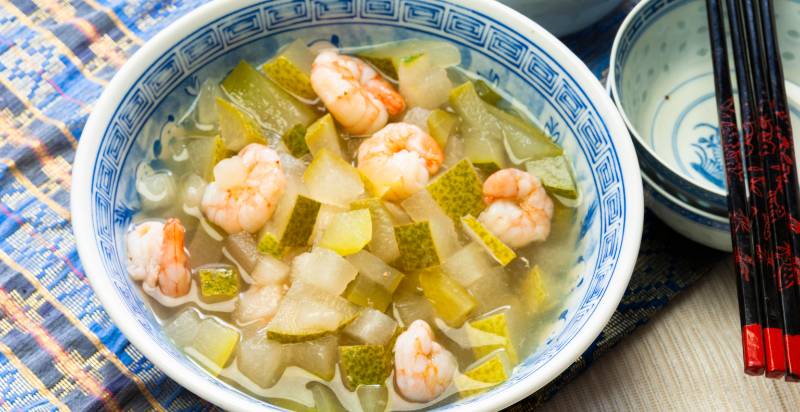Winter Melon, also known as ash gourd, white pumpkin, or wax gourd, is an edible vine fruit from the cucurbitaceous family. The Chinese name for winter melon is ‘tung kwa,’ In India, it is known as ‘petha.’ This winter vegetable has a waxy and hard yellowish-green skin, which is the main ingredient in many traditional Chinese medicinal recipes. Here is everything you wanted to know about winter melon.
What is Winter Melon, and why are they so popular?
Winter melon is a large vine fruit with thick, hard, yellowish-green skin and white flesh. It has been used for centuries in traditional Chinese medicinal recipes due to its high levels of nutrients and minerals. Winter melons are also known for their cooling properties and are commonly used in Chinese herbal teas to reduce fevers and treat headaches. They are also popular among dieters as they contain very few calories and can be added to various dishes for a nutritious boost.

History and Origin of the Winter Melon
The winter melon is native to the Indian subcontinent and has been cultivated for centuries. It was introduced to China during the Song Dynasty and was widely used in traditional Chinese medicine. Winter melon is also popular in other parts of Asia, particularly India, where it is known by various names, including ‘Petha.’ It is also consumed in Africa, the Caribbean, and South America.
Nutritional Information of Winter Melon
Winter melon is a highly nutritious fruit and contains various vitamins, minerals, and antioxidants. It is rich in Vitamin C, potassium, magnesium, and dietary fiber. It is low in calories but high in water content, making it a great choice for dieters.
Health Benefits of Winter Melon
Winter melon has many health benefits, such as its cooling properties, and is often used in traditional Chinese medicine to reduce fevers and treat headaches and other ailments. It also helps with digestion and weight loss and can boost the immune system. In addition, winter melon is known to have anti-inflammatory and antioxidant properties.
How to Choose and Store Winter Melon?
When choosing a winter melon, look for ones that are heavy for their size and have smooth, waxy outer skin. It should feel firm but not too hard when pressed with your finger. To store the melon, wrap it in a plastic bag and keep it in the refrigerator for up to one week.
Where are Winter Melons Grown and Harvested?
Winter melons are grown in tropical and subtropical regions around the world. They are primarily cultivated in India, China, Thailand, Taiwan, and the Philippines. The winter melon is usually harvested when the skin turns yellowish-green or brown.

Flavor Profile of the Winter Melon
Winter melon has a mild and slightly sweet taste. It can be eaten raw or cooked in various soups, stir-fries, and curries. The flesh can also be used to make juices and smoothies.
Where to Find the Best Quality Winter Melon?
The best quality winter melons can be found in Asian markets, particularly those specializing in Chinese or Indian ingredients. You can also find them at some supermarkets and online grocery stores.
How to Use Winter Melon in Recipes?
If you’re making a salad, diced winter melon can be combined with other fruits such as apples, pears, and even bananas. Winter melon can also be added to green salads for a unique flavor. For dressings, you can use a vinaigrette or a simple combination of olive oil, salt, and pepper.
If you’re making a soup, try combining diced winter melon with vegetables such as carrots, celery, onions, and tomatoes. A touch of curry or chili powder can add an extra layer of flavor. You can also make a stir-fry by combining diced winter melon with vegetables such as broccoli, bell pepper, and mushrooms. Serve this over rice or noodles for a complete meal.

No matter which recipe you choose, adding winter melon will add an interesting flavor and texture to your dish. With a little bit of creativity, you can use winter melon in combination with other fruits and vegetables to create delicious dishes!
Happy Eating! 🙂
- Everything You Wanted to Know About Red Tamarillos - June 2, 2025
- A Guide to Tulips: Everything You Need to Know & More… - June 2, 2025
- Guanabana: Description, Flavor, Benefits, And Uses - May 27, 2025

2 thoughts on “Winter Melon: Description, Flavor, Benefits, And Uses”
Comments are closed.